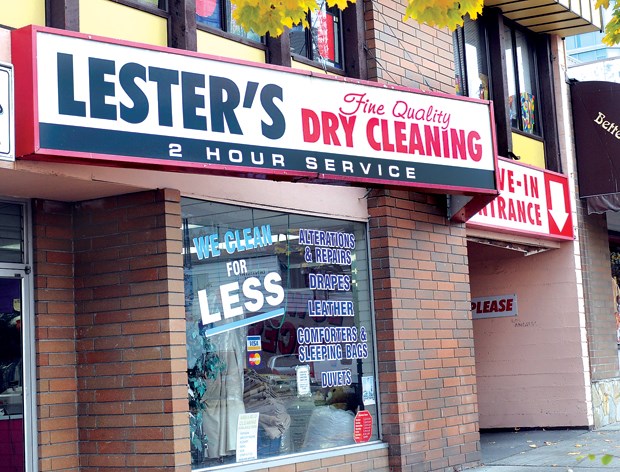A North Vancouver drycleaning business is in hot water with Environment Canada after allegedly mishandling a toxic chemical.
Lester Cleaners at 124 East 14th Street and company owner Alhamid Dharshi have been charged with three counts under the Environmental Protection Act for not properly storing, disposing or reporting the chemical tetrachloroethylene, also known as PERC.
PERC is a chemical used in the dry-cleaning process and has been federally regulated for the past 10 years. According to Environment Canada's website, atmospheric concentrations of PERC could have adverse effects on some plants, particularly trees, and contamination of groundwater is a concern with improper disposal of the chemical.
Dry-cleaning companies are required to submit an annual report to Environment Canada of receipts, books and records of the purchase, use and disposal of PERC in their facilities. Companies are also required to properly dispose of any PERC residue, including sludge, lint and used filters.
Residues, as well as wastewater, are to be stored in a secondary containment system.
Lester's, along with 47 other Lower Mainland dry-cleaning businesses, was inspected last year by Environment Canada Enforcement Officers. Almost half of the businesses inspected were found to have at least one container of PERC, wastewater or residue without a secondary containment system.
Lester's is the only company that has been charged so far.
According to information contained in a search warrant application, Dharshi allegedly told officers during the initial June 2012 inspection that his business used PERC and that two containers in the facility held wastewater containing the toxic chemical. According to the application, officers also noted a container of sludge, which is dirt that is left over from cooking PERC. Dharshi allegedly told officers the container of sludge had been at the facility for three or four months without secondary containment.
Dharshi did not return calls to the North Shore News by press time.
A spokesman for Environment Canada also declined further comment on the case.
Environment Canada officers conduct inspections of dry-cleaning businesses to ensure they are following government regulations regarding the use of PERC, including storage, use and disposal.
PERC is included in the Priority Substances List, a list of 44 substances that are assessed by the Department of the Environment and Health as to whether they are "toxic or capable of becoming toxic," and pose a risk to health or the environment. PERC was found to be toxic. Newer dry-cleaning machines are more efficient in minimizing any spills of the chemical and better manage the disposal of the residue and wastewater.
Prairie Distributors, the company that supplied PERC to the 21 businesses that were inspected, was sent a notice by Environment Canada in 2008 prohibiting them from selling PERC to any owner or operator of a dry-cleaning machine that did not have a secondary containment system. Investigators searched the distributing company in August 2012.



